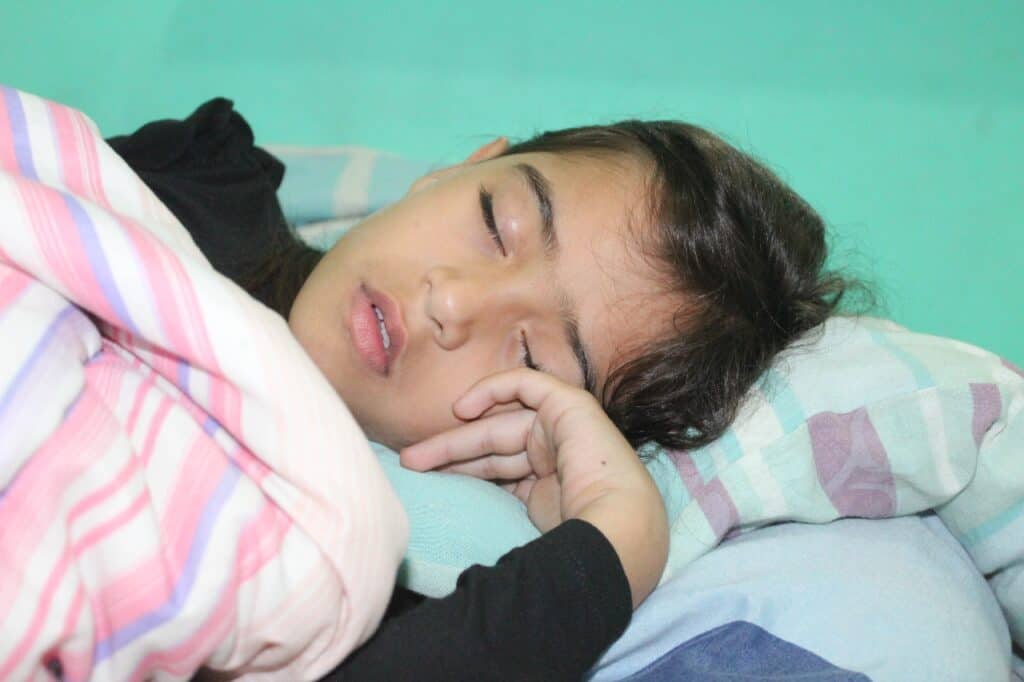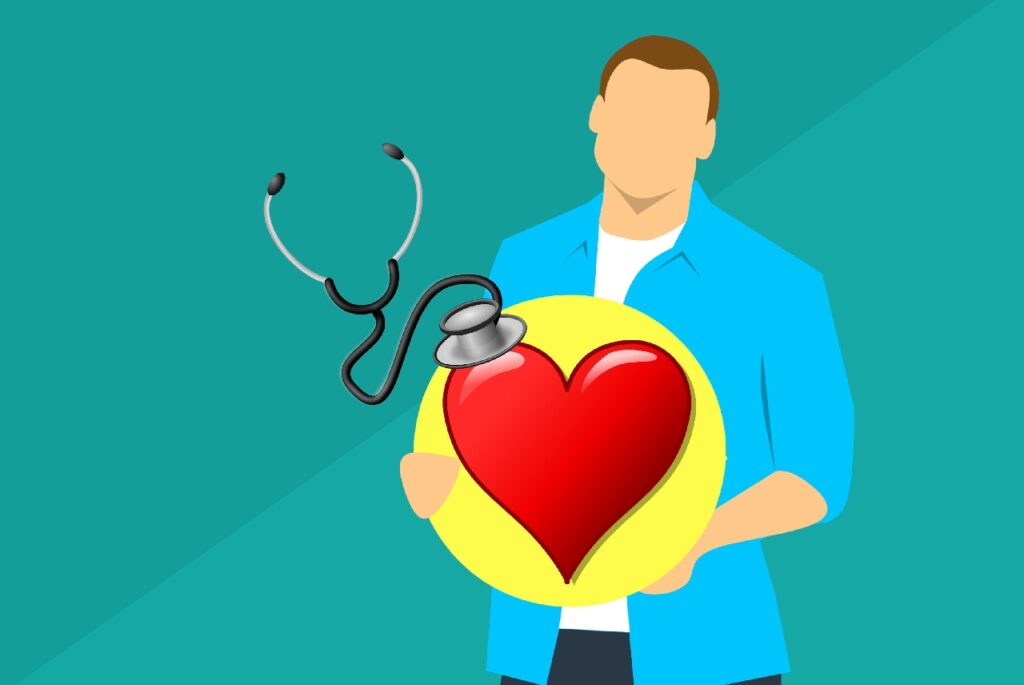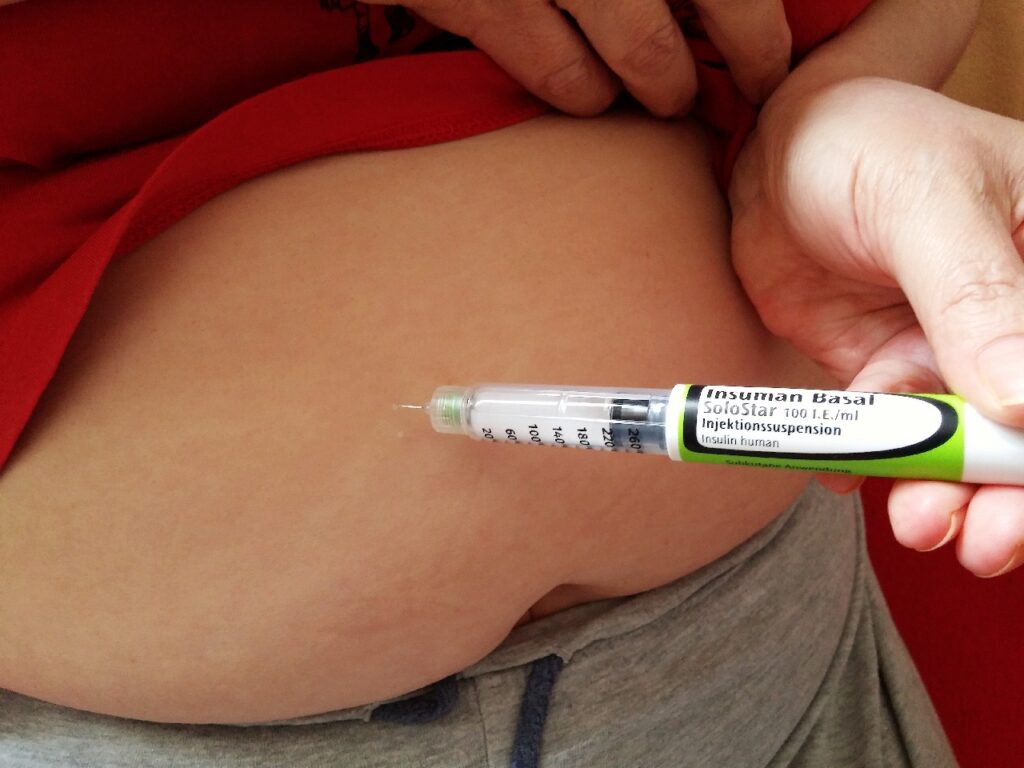THE HEALTH AND FITNESS BLOG
August 07, 2022 – By Dr. Haider Khalid

It is difficult to see you Can you get sick from a lack of Sleep? Sleep is an innate behavior in human beings similar to eating food and drinking water. Even after several pieces of research, we know very little about the exact purpose of sleep in the body. However, experts believe that there isn’t only one purpose of sleep. Instead, sleep is essential to promote a person’s overall health and physical well-being.
Energy conservation, cellular restoration, brain function maintenance, weight management, emotional well-being, proper immune functioning, and improvement in heart health are some of the essential purposes of sleep in the human body (1). Therefore, lack of sleep affects the body in multiple ways.
In this article, you will learn about various illnesses related to the lack of sleep or sleep disorders.
What is the Sleep Requirement of Different Age Groups?

Sleep is an essential part of human life. That’s why we spend almost one-third of our lifetime sleeping (2). Everyone has unique sleep requirements. Nevertheless, age is the primary factor that determines the amount of sleep you need at night.
According to the guidelines of the CDC, the recommended amount of sleep to reduce the risk of chronic illnesses includes the following (3),
- Newborn (0-3 months) requires 14-17 hours of sleep compared to 12-16 hours for infants (up to 12 months)

- Toddlers (1-2 years), preschool children (3-5 years), and children of school age (5-12 years) require 11-14 hours, 10-13 hours, and 9-12 hours of sleep, respectively.
- Teenagers (13-18 years) need almost 8-10 hours of sleep during the day, including naps and night sleep.
- The minimum requirement for adults (19-60 years) is 7 hours of sleep every night. However, healthy sleeping for more than seven hours would not harm their body.
- After 60 years, adults need to sleep for a minimum of 7 hours and a maximum of 9 hours to get the most health benefits. Sleeping for less than 7 hours or more than 9 hours is associated with an increased risk of cardiovascular abnormalities.
Here are the Common Illnesses Associated with a Lack of Sleep
Getting a correct amount of sleep every day, not too much, not too little, is incredibly important for your physical and mental well-being. The importance of balanced sleep can be well-understood by relating it synonymously to a balanced diet, nutrition, and exercise.
Most people around the globe don’t get the recommended amount of sleep. The lack of sleep puts your health at risk of several chronic illnesses. Therefore, you must prioritize your sleep. It would be best to adopt the ideology that a good night’s sleep always comes first, while everything comes later.
I have mentioned several illnesses you may get due to lack of sleep. All this discussion will help develop your understanding and make you more compliant with good sleep hygiene.
Progressive Decline in Brain Function

There are four main aspects of brain functioning: cognition, concentration, performance, and productivity. All these aspects require a recommended amount of sleep to reach their maximum potential.
For example, according to a clinical study, the concentration of the human brain is incredibly affected by sleep deprivation. But on resting or getting sleep, the brain restores its function leading to better attention (4).
Moreover, each sleep cycle phase rejuvenates the brain cells that may have been damaged during the day. When you sleep, your brain clears itself off the toxic accumulated substances and recharges itself (5). The brain cannot function without proper repairing, as happens in cases of sleep deprivation. This leads to a reduction in brain power and activity.
The effect of sleep impairment is well understood through studies conducted on physicians. For example, according to research, doctors with very-high sleep deprivation reported 97% more risk of making medical errors during their ward duties (6). Similar reports are also related to students and adults of different professions and age groups.
As evident from the above discussion, better sleep hygiene is associated with 25% better brain performance in college students (7). In contrast, sleep problems are responsible for poorer performance in college students.
Based on the above discussion, you must get adequate sleep unless you want to damage your brain significantly. A good night’s sleep for recommended hours also helps you to improve problem-solving skills and memory, whether a child or an adult (8).
Unhealthy Weight Gain

One of the most common problems in sleep-deprived people is increased appetite and unnecessary gain of body weight. These findings are mostly related to those who experience short sleep. According to guidelines, short sleep indicates sleep for less than 7 hours.
Thus, if you have short sleep problems, you are more likely to gain weight and have a higher body mass index (BMI) (9). Moreover, a clinical study shows that people who sleep less than 7 hours daily have a 41% greater chance of developing obesity (10).
Obviously, at this point, you are probably wondering about the scientific relation between sleep deprivation and unhealthy weight gain. Therefore, the answer to this question is also discussed to develop a better understanding.
The relationship between the two depends on numerous factors. But the most important ones are hormonal changes and decreased physical activity. Let’s discuss the hormones first. In your body, ghrelin increases the appetite while leptin reduces it (11). The balance between these two hormones controls your hunger and maintains your eating habits according to your body’s needs.
Increased ghrelin and decreased leptin in the blood are common findings associated with the lack of sleep. These changes make a person crave more calories, particularly fats and carbohydrates, ultimately leading to significant weight gain (12). Moreover, little sleep also makes your body sluggish, and your spirit to perform physical activity is also reduced. Therefore, it is the second main reason for weight gain in sleep-restricted people.
When it comes to losing weight rest is most important as you will learn by reading this article on Weight Loss and why you may not be losing weight.
Reduced Sexual Desire and Arousal
In females, adequate sleep is essential for multiple sexual performance and engagement factors. Healthy sexual desire, genital response, and engagement in partnered sexual activity all depend on a sufficient amount of good night’s sleep (13). Extrapolating of data also indicates that sleep problems can ultimately lead to sexual dysfunction.
The effects of sleep deprivation are not limited to females only. But research also indicates problems of erectile dysfunction in men who reported a lack of sleep. Moreover, low testosterone levels, lower urinary tract symptoms, and infertility have also been associated with poor sleep hygiene in men (14).
Heart Diseases

Heart disease is one of the most typical causes of mortality worldwide. Researchers have been trying to minimize the risk factors associated with a decline in heart function for several years. One of the crucial risk factors is poor sleep hygiene (15). Thus, if you are someone who wants to reduce your risk of heart disease, you can start by improving the quality and duration of your sleep.
Moreover, poor sleep is also associated with problems like high blood pressure. For example, a clinical study shows a 61% greater risk of high blood pressure in people who sleep for less than 5 hours (16). Most remarkably, increased risk of high blood pressure and heart disease is also linked to excessive sleep of more than 9 hours (17).
Type 2 Diabetes Mellitus

Affected sugar metabolism is worth mentioning whenever it comes to the effects of lack of sleep on the body. Sleep deprivation accelerates the development of insulin resistance in the body (18).
Insulin resistance indicates that the body has adequate insulin but cannot utilize it properly. It is the primary underlying phenomenon related to the causation of type 2 diabetes mellitus.
Regardless of its direct effect on insulin function, lack of sleep is also associated with health issues like heart disease, hormonal abnormalities, and obesity. These three factors are the critical cornerstones of developing type 2 diabetes mellitus (19).
There are various pieces of research in the scientific literature that confirms the association between sleep deprivation and the risk of diabetes. For example, according to a meta-analysis, the risk of diabetes is 48% higher in individuals with a history of sleeping for less than 5 hours a day (20).
Diabetes is a multi-factorial disease. Its etiology is related to a large number of factors. Some responsible factors include decreased insulin function, hunger hormone changes, greater food intake, and inflammatory changes. Unfortunately, lack of sleep promotes the progression of each of these factors. Therefore, it increases the risk of diabetes at an exponential rate.
Hence, if you want to keep your blood sugar levels in check, you can start by improving the duration of your sleep schedule.
Increased Risk of Depression

Someone concerned about his mental health should maintain his sleep schedule before moving toward other therapeutic strategies. A healthy night’s sleep is the essential component that helps to comfort your mind and ease most of your tensions.
Sleep disorders such as insomnia are the most typical causes of depression worldwide. A poorly relaxed mind attracts depression as honey attracts bees. This statement is also supported by scientific evidence. According to a clinical study conducted in 2021, many children and adults with sleep problems are at risk of developing depression (21).
Studies have also reported a greater incidence of other psychiatric comorbidities in people with sleep problems (22). For example, obstructive sleep apnea is a condition that is most related to depression symptomatology in adults. OSA is a condition characterized by the relaxation of muscles in the throat and back, leading to the obstruction of airways, resulting in obstructed sleep throughout the night (23).
If you are passionately trying to get a good amount of sleep, but can’t do so, try natural remedies this time. Natural remedies will help reduce your sleep problems and ease your symptoms of depression. However, if those don’t work, contact your health care provider for an expert opinion.
Inflammatory Disorders

Sleep and immunity are related similar to how obesity and diabetes are associated with each other. People with affected immunity experience sleep problems. On the other hand, those with sleep issues tend to have a damaged body’s defense system (24).
Thus, for proper functioning, the immune system requires good sleep hygiene. For example, scientific data suggests that the body’s immune response to the influenza vaccine improves significantly if satisfactory sleep quality and duration (25).
Similar findings are also reported related to Covid-19 vaccination. According to a study, the efficacy of the Covid-19 vaccine increases significantly if the person gets enough sleep. But more research is required to develop definitive statements about this hypothesis (26).
Most importantly, there has been a significant association between the risk of inflammatory disorders and sleep deprivation. In our brain, proper sleep is responsible for the management of stress. Conversely, insufficient sleep would result in increased stress-related changes such as increased concentration of inflammatory substances (27).
Long-term exposure of body tissues to these inflammatory chemicals results in cell death and cumulative tissue damage. In addition, metabolic diseases like diabetes and obesity and neurodegenerative diseases like Alzheimer’s also have an inflammatory component.
Poor sleep increases the risk of these diseases by promoting inflammation. Moreover, lack of sleep has also been reported to slightly increase the risk of certain types of cancers in the body (24).
The Bottom Line
Sleep makes an integral part of your day. It is as essential as nutrition for the healthy survival of your body. It helps your body repair the damage you have done throughout the day. Thus, you cannot ignore it as something unnecessary. If you don’t maintain your sleep schedule, you will experience multiple health issues.
Poor sleep quality and duration increase your risk of several illnesses and health problems. Some particular ones include brain damage, heart disease, depression, diabetes, reduced sexual performance, and other chronic disorders. Therefore, move a step towards a healthy life by improving your sleep hygiene.
Become a part of our growing online community on Something Better Today.
References
1. Brinkman JE, Sharma S. Physiology, Sleep [Internet]. PubMed. Treasure Island (FL): StatPearls Publishing; 2020 [cited 2022 Aug 7]. Available from: https://www.ncbi.nlm.nih.gov/books/NBK482512/
2. Brain Basics: Understanding Sleep | National Institute of Neurological Disorders and Stroke [Internet]. www.ninds.nih.gov. [cited 2022 Aug 7]. Available from: https://www.ninds.nih.gov/health-information/patient-caregiver-education/brain-basics-understanding-sleep
3. CDC. CDC – How Much Sleep Do I Need? – Sleep and Sleep Disorders [Internet]. CDC. 2017 [cited 2022 Aug 7]. Available from: https://www.cdc.gov/sleep/about_sleep/how_much_sleep.html
4. Hudson AN, Van Dongen HPA, Honn KA. Sleep deprivation, vigilant attention, and brain function: a review. Neuropsychopharmacology. 2019 Jun 8;45(1):21–30.
5. Eugene AR, Masiak J. The Neuroprotective Aspects of Sleep. MEDtube Sci. 2015;3(1):35-40. PMCID: PMC4651462
6. Trockel MT, Menon NK, Rowe SG, Stewart MT, Smith R, Lu M, et al. Assessment of Physician Sleep and Wellness, Burnout, and Clinically Significant Medical Errors. JAMA Network Open [Internet]. 2020 Dec 7;3(12):e2028111. Available from: https://jamanetwork.com/journals/jamanetworkopen/fullarticle/2773777
7. Okano K, Kaczmarzyk JR, Dave N, Gabrieli JDE, Grossman JC. Sleep quality, duration, and consistency are associated with better academic performance in college students. npj Science of Learning [Internet]. 2019 Oct 1 [cited 2022 Aug 7];4(1). Available from: https://www.nature.com/articles/s41539-019-0055-z
8. Dai C, Zhang Y, Cai X, Peng Z, Zhang L, Shao Y, et al. Effects of Sleep Deprivation on Working Memory: Change in Functional Connectivity Between the Dorsal Attention, Default Mode, and Fronto-Parietal Networks. Frontiers in Human Neuroscience. 2020 Oct 12;14.
9. Brum MCB, Dantas Filho FF, Schnorr CC, Bertoletti OA, Bottega GB, da Costa Rodrigues T. Night shift work, short sleep and obesity. Diabetology & Metabolic Syndrome. 2020 Feb 10;12(1).
10. Bacaro V, Ballesio A, Cerolini S, Vacca M, Poggiogalle E, Donini LM, et al. Sleep duration and obesity in adulthood: An updated systematic review and meta-analysis. Obesity Research & Clinical Practice. 2020 Jul;14(4):301–9.
11. Ding C, Lim LL, Xu L, Kong APS. Sleep and Obesity. Journal of Obesity & Metabolic Syndrome [Internet]. 2018 Mar 30;27(1):4–24. Available from: https://dx.doi.org/10.7570%2Fjomes.2018.27.1.4
12. Yang C-L, Schnepp J, Tucker RM. Increased Hunger, Food Cravings, Food Reward, and Portion Size Selection after Sleep Curtailment in Women Without Obesity. Nutrients [Internet]. 2019 Mar 19;11(3). Available from: https://www.ncbi.nlm.nih.gov/pmc/articles/PMC6470707/
13. Kalmbach DA, Arnedt JT, Pillai V, Ciesla JA. The impact of sleep on female sexual response and behavior: a pilot study. The journal of sexual medicine [Internet]. 2015 [cited 2022 Aug 7];12(5):1221–32. Available from: https://www.ncbi.nlm.nih.gov/pubmed/25772315
14. Kohn TP, Kohn JR, Haney NM, Pastuszak AW, Lipshultz LI. The effect of sleep on men’s health. Translational Andrology and Urology [Internet]. 2020 Mar 1 [cited 2022 Aug 7];9(Suppl 2):S178–85. Available from: https://www.ncbi.nlm.nih.gov/pmc/articles/PMC7108988/
15. Covassin N, Singh P. Sleep Duration and Cardiovascular Disease Risk: Epidemiologic and Experimental Evidence. Sleep medicine clinics [Internet]. 2016;11(1):81–9. Available from: https://www.ncbi.nlm.nih.gov/pubmed/26972035
16. Wang Y, Mei H, Jiang Y-R, Sun W-Q, Song Y-J, Liu S-J, et al. Relationship between Duration of Sleep and Hypertension in Adults: A Meta-Analysis. Journal of Clinical Sleep Medicine [Internet]. 2015 Sep 15;11(09):1047–56. Available from: https://www.ncbi.nlm.nih.gov/pmc/articles/PMC4543249/
17. Krittanawong C, Tunhasiriwet A, Wang Z, Zhang H, Farrell AM, Chirapongsathorn S, et al. Association between short and long sleep durations and cardiovascular outcomes: a systematic review and meta-analysis. European Heart Journal: Acute Cardiovascular Care. 2017 Dec 5;8(8):762–70.
18. Chattu V, Chattu S, Burman D, Spence D, Pandi-Perumal S. The Interlinked Rising Epidemic of Insufficient Sleep and Diabetes Mellitus. Healthcare. 2019 Mar 5;7(1):37.
19. Grandner MA, Seixas A, Shetty S, Shenoy S. Sleep Duration and Diabetes Risk: Population Trends and Potential Mechanisms. Current Diabetes Reports. 2016 Sep 23;16(11).
20. Anothaisintawee T, Reutrakul S, Van Cauter E, Thakkinstian A. Sleep disturbances compared to traditional risk factors for diabetes development: Systematic review and meta-analysis. Sleep Medicine Reviews. 2016 Dec;30:11–24.
21. Marino C, Andrade B, Campisi SC, Wong M, Zhao H, Jing X, et al. Association Between Disturbed Sleep and Depression in Children and Youths. JAMA Network Open. 2021 Mar 22;4(3):e212373.
22. Oh C-M, Kim HY, Na HK, Cho KH, Chu MK. The Effect of Anxiety and Depression on Sleep Quality of Individuals With High Risk for Insomnia: A Population-Based Study. Frontiers in Neurology. 2019 Aug 13;10.
23. Hayley AC, Williams LJ, Venugopal K, Kennedy GA, Berk M, Pasco JA. The relationships between insomnia, sleep apnoea and depression: Findings from the American National Health and Nutrition Examination Survey, 2005–2008. Australian & New Zealand Journal of Psychiatry. 2014 Aug 15;49(2):156–70.
24. Besedovsky L, Lange T, Haack M. The Sleep-Immune Crosstalk in Health and Disease. Physiological Reviews. 2019 Jul 1;99(3):1325–80.
25. Prather AA, Pressman SD, Miller GE, Cohen S. Temporal Links Between Self-Reported Sleep and Antibody Responses to the Influenza Vaccine. International Journal of Behavioral Medicine. 2020 Mar 31;28(1):151–8.
26. Benedict C, Cedernaes J. Could a good night’s sleep improve COVID-19 vaccine efficacy? The Lancet Respiratory Medicine [Internet]. 2021 May 1;9(5):447–8. Available from: https://www.ncbi.nlm.nih.gov/pmc/articles/PMC7954467/
27. Irwin MR. Sleep and inflammation: partners in sickness and in health. Nature Reviews Immunology [Internet]. 2019 Jul 9;19(11). Available from: https://www.nature.com/articles/s41577-019-0190-z

Leave a Reply